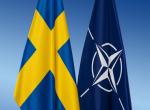As President Obama’s visit comes closer, hopes that it will produce the results it should are receding. Background briefings from both sides suggest no big announcements will be made. The focus of the visit has shifted from strategy to the economy. The President wants the burgeoning India connection to produce more jobs in the US. Salesmanship seems to be overtaking statesmanship.
A strong India-US economic relationship is no doubt vital for the health of the strategic relationship betwen the two. If, as is said, the business of America is business, pragmatism would justify the emphasis on economic ties. But then, such ties can flourish without any strategic underpinning. China has become our biggest trade partner, despite the pervasive view in India that it is our biggest adversary. US and China are locked up into an exceptionally tight financial and trade embrace and yet major strategic differences bedevil their relationship.
The opportunity of President Obama’s visit ought to be used by both sides to consolidate their strategic ties. The greater responsibility for this lies on the US. The Indo-US nuclear deal was the first decisive step to build mutual confidence at the strategic level, not the last. Some US and Indian commentaries seek to put India on the defensive with the gripe that it keeps asking a lot from the US without introspecting about what it should offer in return. The sub-text here is that the nuclear deal is such a grand favour to India that we are obliged to show our gratitude by providing corresponding returns.
Our relationship with the US is too important for any reflexive criticism of its policies. But because it is a key relationship, we must remain clear-sighted, in our own best interest, about US policies. The US has been the country most responsible in the past to inflict strategic policy blows on India. It quarantined over decades our nuclear power sector, subjected India to various technology denial regimes, including the Missile Technology Control Regime, interfered in Kashmir, armed Pakistan, ignored its state-sponsored terrorism against India, tolerated the Pakistan-China nuclear and missile axis, unleashed extremist Islamic ideologies in the region to combat the godless Soviets in Afghanistan etc. The shared values of democracy, pluralism, respect for human rights, etc that are today seen as a strategic foundation for a peaceful and stable international order have not in the past acted as a political solder between India and the US.
There are several past punitive or deleterious policies toward India that the US has still to undo. Recent developments suggest this will not happen easily or quickly. The US timed the third strategic dialogue with Pakistan just before President Obama’s India visit and announced a further $2.3 billion military aid to it to signal that in South Asia it will maintain a balancing policy. This, as well as the commitment to visit Pakistan next year, was intended as political compensation for not including Pakistan in his itinerary this time. The insensitive decision to further arm Pakistan, unmindul of India’s concerns, should be viewed in the background of Pakistan’s failure to punish those responsible for Mumbai, its aggressive posturing on talks with India, the reversion to its traditional hard line on Kashmir during the last UNGA session and General Kayani’s declared India-centric obsession. The glib explanation US gives for adding to Pakistan’s military muscle, namely that it does not change the military balance between India and Pakistan, adds insult to injury.
Any reconciliation with the Taliban would be a major strategic set back for India in the region. The political compulsion to “exit” from Afghanistan is pushing this reprehensible overture to an unspeakable extremist ideology. For this policy to succeed Pakistan’s cooperation is indispensable as the Taliban leaders function from its soil. Pakistan will demand protection of its geo-political interests in Afghanistan in any eventual solution. Some of its concerns and demands are legitimate, but Pakistan defines its geo-political interests in Afghanistan in opposition to India, artificially generating as a result the spectre of India-Pakistan rivalry there and causing questions to be asked about our intentions in Afghanistan and calls for “transparency”. Even our development aid to Afghanistan is sought to be wrapped in controversy. For India the political consolidation of the Taliban ideology in the region endangers India’s internal security, besides excluding India from regional economic opportunities and connectivity. In such a scenario China’s penetration in the region around it will add to India’s security dilemmas. With the US hardly in control of developments in Afghanistan, and domestic political compulsions uppermost in the President’s mind, India is unlikely to get strategic comfort in Afghanistan from the US.
The US is making a general review of its Cold War export control regime that hurts its commercial interests. India is demanding an easier flow of high and dual use technologies and removal from several restrictive categories in which it is still placed. Further easing of controls will boost Indian purchases of US technologies, creating more US jobs in line with the President’s agenda. However, other than removing subsidiaries of ISRO and DRDO from the US Entity List-which we should welcome- no other step is likely to be announced during the coming visit. In space, given India’s capabilities, India and the US can move beyond the Commercial Space Launch Agreement expected to be signed during the visit, if such cooperation can be liberated from the shadow of the Missile Technology Control Regime. Another strategic decision would be to find a flexible way to deal with the issue of Intellectual Property Rights pertaining to clean environmental technologies that countries like India need to control their greenhouse gas emissions in the context of Climate Change concerns. This is, however, an issue of wider dimensions and decisions cannot be taken in the India-US bilateral context alone.
India’s Nuclear Liability Act, which had caused great disappointment in the US as it did not give absolute protection to US companies against any accident related claims, including in US courts, appears to have moved off the agenda with India’s signature of the Convention on Supplementary Compensation(CSC). The no-supplier-liability-in-any-circumstances demand has seemed indefensible in principle and the overweening attitude of US companies does not augur well for handling of future differences in commercial negotiations, especially on the question whether the CSC signature over-rides our liability legislation.
India has taken the strategic decision to procure US defence equipment despite concerns about security of supplies in case of a conflict with Pakistan with which the US has a strategic relationship too. India has overlooked US arming of our most implacable adversary in purchasing US platforms. This is a major step in tune with wide public support for beneficial ties with the US. But as US policies in our region are not compatible with our interests, India is reluctant to enter into more institutionalized defence arrangements with it by signing the pending inter-operability, logistics and security of technology agreements.
Given the complexities of India-US ties, it is not clear whether President Obama has either space or determination to pursue a strategic rather than a transactional route to build them further.
The writer is a former Foreign Secretary
--------------------------------------------
Published in Mail Today, Published Date : November 2, 2010









Post new comment